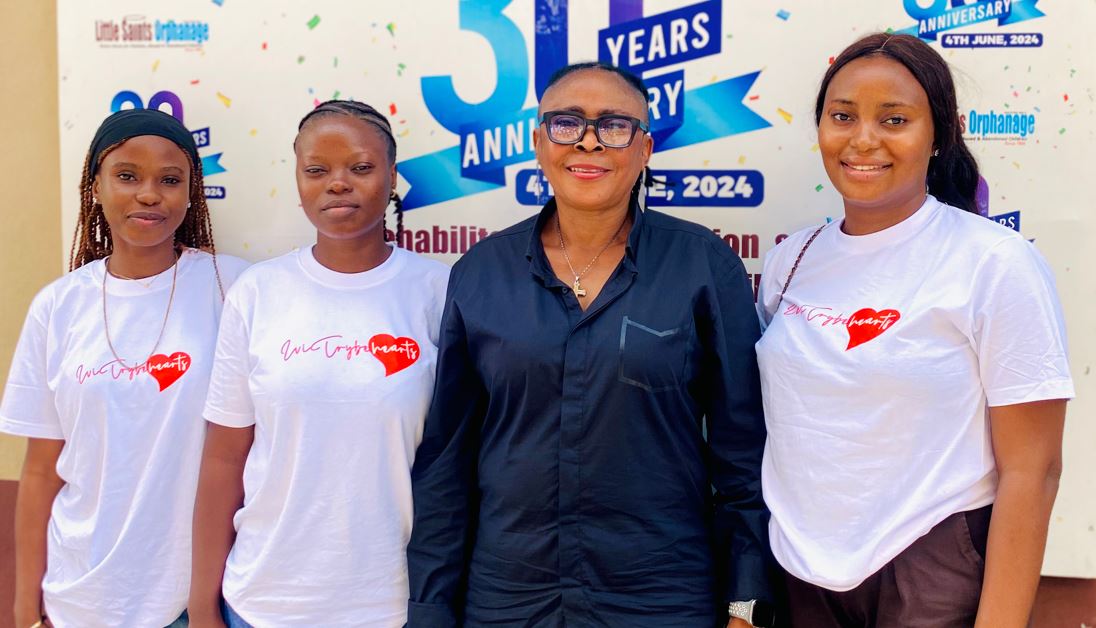News
Ericsson Consumer & IndustryLab Reveals Flexibility as the New Work Life Currency

A new report, Future of Work Life, from Ericsson Consumer & IndustryLab examines how employees and employers navigate the current work environment and their views on the future of work shaped by the pandemic, digitalization and the fluctuating labor market.

The way people spend their work hours has been the same for a long time, but the pandemic was a major disruptor of this. Work has changed and will continue to change going forward.
Almost half (48 percent) of the employees in the study say that they enjoy increased flexibility at work. 52 percent consider flexible work hours or locations as key requirements, and 25 percent say that flexibility is the top priority if they would start to look for a new job. Doing work rather than going to work is seen as central in this new way of thinking about work life.
Employers need to embrace digitalization and flexible workforce management, and this can be done by creating a workplace of the future that supports human collaboration, simplifies work and values employee input in decision making.
Key findings:
- Flexibility is the new work life currency. Employees predict flexibility as a future employment need as hybrid work continues to be the norm as 25% of the global working population say they will prioritize flexibility above all else.
- Digital technologies renew employee confidence. Using the right digital technologies boost twice as much positive feelings for employees without increasing stress.
- Decision-makers and employees are increasingly at odds over technology. Only 33% of employers consider employee preferences when investing in new technology as 4 out 10 employees struggle with non-relevant tools for their tasks.
- Flexible workplaces may come at the cost of increased surveillance. Balancing visibility and privacy is a challenge and concern for hybrid work. 65% of employees who are optimistic about technologically-enabled flexibility also believe it will be tied to an increase in monitoring.
- Globalized labor markets bring talent and concerns to employers. Decision makers in emerging markets agree loyalty is declining with the rise of remote jobs.
- Five employee paths shape the future of work. Employees prioritize flexibility (24 %) digitalization (20 %), project-based work (12 %), or career (19 %) and financial stability (25%).
“Based on our research, it is quite clear that the future of work is going to be increasingly dependent on ICT solutions such as high-speed, globally available mobile connectivity. We felt the pandemic could finally be seen in the rear-view mirror, and therefore wanted to take a closer look at what changes in peoples worklife had stuck, and what was only a temporary adjustment! My own favourite take-away is that remote work is clearly here to stay – maybe not exactly at the level as was measured during the pandemic, but still at significantly higher levels than before the pandemic!” – Anders Erlandsson, Head of Ericsson IndustryLab
“Amidst the rapid digitalization brought on by the pandemic, our research highlights a concerning gap between the technology available in the workplace and the needs of employees for flexible working.
“With 6 in 10 companies lacking relevant technology for their staff, and just 2 in 10 employees feeling they have relevant tools at workplace there is a pressing need for organizations to invest in digital tools and robust connectivity that enable remote collaboration and flexibility, not only to attract and retain top talent, but also to stay competitive in the post-pandemic world.” – Jasmeet Singh Sethi, Head of Ericsson ConsumerLab
The research was carried out during 2022 within 30 markets globally; 38,000 online surveys of employees plus 3,600 online surveys of decision-makers and 11 in-depth interviews with decision-makers from selected industries within three markets; China, Spain and US.
News
OAU Taps Aderounmu, Tech Advocate as DVC Academics

Obafemi Awolowo University (OAU), Ile-Ife, has appointed Professor Adesola Aderounmu, renowned computer scientist and technology advocate, as its new Deputy Vice-Chancellor (Academics).

Professor Adesola Aderounmu
The decision, made by the university’s Senate, marks a strategic step towards aligning OAU’s academic vision with technological innovation and global best practices.
A distinguished scholar and leader in Computer Science and Engineering, Professor Aderounmu brings decades of experience to this pivotal role.
He has served as the Centre Lead for the African Centre of Excellence in Software Engineering and the Obafemi Awolowo University Knowledge Park (OAK-Park), where he has driven initiatives that advance technological innovation and academic excellence.
His leadership journey includes serving as Dean of the Faculty of Technology and Head of the Department of Computer Science, as well as President of the Nigeria Computer Society from 2015 to 2019. Under his stewardship, the Africa Centre of Excellence in ICT (OAK-Park) was established and has flourished, positioning OAU as a hub for digital transformation in Nigeria and across Africa.
“This is an opportunity to shape the future of education at OAU,” Professor Aderounmu stated. “I am committed to fostering an environment where ideas thrive.”
Professor Aderounmu’s appointment as DVC Academics carries significant implications for the information technology profession and industry in Nigeria and Africa.
His leadership is expected to further bridge the gap between academia and industry, aligning curriculum with emerging technological trends, and fostering research that directly addresses the needs of Nigeria’s evolving digital economy.
His commitment to developing high-level ICT talent will contribute to strengthening the nation’s capacity in critical areas such as artificial intelligence, cybersecurity, software engineering, and digital entrepreneurship.
As Nigeria and Africa continue to embrace digital transformation, this appointment signals a continued push for collaboration between universities and the technology industry, ensuring that graduates are equipped with globally relevant skills while advancing innovative research that supports the tech ecosystem.
This appointment recognises Professor Aderounmu’s unwavering commitment to research, excellence in education, and visionary leadership, and marks a significant milestone in the university’s ongoing mission to deliver impactful education and innovation for national and continental development.
News
IviTrybe Hearts Takes Kindness Drive to Little Saints Home

In a heartwarming demonstration of corporate social responsibility and community impact, IviTrybe Hearts, a key initiative driven by members of IviTrybe – a vibrant group of budding marketing communications specialists – visited the Little Saints Orphanage, Akowonjo branch.

The visit, part of IviTrybe’s ongoing commitment to societal betterment, was significantly supported by Pladis Foods Nigeria, which generously donated gift items and products.
IviTrybe is a social responsibility initiative of IVI PR, a dynamic public relations agency dedicated to not only elevating brands but also fostering positive societal impact. This initiative provides focused practical training covering brand strategy and public relations, directly addressing the critical issue of insufficiently skilled manpower within Nigeria’s Public Relations industry. Through the #IviTrybeHearts program, the group channels its growing expertise into meaningful community engagement.
During the visit, the IviTrybe Hearts team dedicated the day to creating a memorable and impactful experience for the children. Activities included extensive bonding and interaction sessions, where members engaged in games and companionship, fostering an atmosphere of joy and connection. Essential items were donated to support the orphanage’s daily needs, and motivational talks were delivered, inspiring the children with words of encouragement and hope for their futures.
Busari Toheeb Dolapo, IviTrybe Coordinator and spokesperson for the project, underscored the essence of the visit, stating, “For whom much is given, much is expected. We have been empowered through knowledge and mentorship at IVI PR, and it’s only right that we channel that privilege into making a difference. The smiles on the children’s faces today reminded us why giving back is non-negotiable.”
The management of Little Saints Orphanage expressed profound gratitude for the support and the tangible impact of the donations, emphasising how such gestures significantly improve the lives and spirits of the children under their care.
Through impactful initiatives like IviTrybe Hearts, IviTrybe continues to exemplify how youth-led action, empowered by practical training and a strong sense of responsibility, can effectively shape communities and enrich lives for the better.
News
INTERPOL Report Shows Cybercrime is West, East African Most Dominant Security Concern

Cybercrime has emerged as a dominant security concern across Africa, with more than 30 percent of all reported crimes in Western and Eastern regions linked to cyber activity, according to the newly released 2025 Africa Cyberthreat Assessment Report by INTERPOL.

The report, based on data from African member states and private sector partners, reveals that two-thirds of surveyed countries describe cybercrime as constituting a medium to high share of total criminal cases.
This highlights how cyber-enabled criminal activity is evolving rapidly across the continent. The report identified alarming spikes in scam attempts, with some countries witnessing a 3,000 percent increase in suspected scam notifications in the past year.
Neal Jetton, INTERPOL’s Cyber Crime Director, warned that the threat landscape is evolving faster than enforcement responses.
“This fourth edition of the INTERPOL African Cyber Threat Assessment provides a vital snapshot of the current situation, informed by operational intelligence, extensive law enforcement engagement, and strategic private-sector collaboration.
“It paints a clear picture of a threat landscape in flux, with emerging dangers like AI-driven fraud that demand urgent attention. No single agency or country can face these challenges alone,” Jetton stated.
In the past year, suspected scam notifications rose by up to 3,000 per cent in some African countries, according to data from Kaspersky, one of several private sector partners that work with INTERPOL’s cybercrime directorate
Online scams, particularly through phishing, are the most frequently reported cybercrimes across the continent. Ransomware attacks and Business Email Compromise (BEC) incidents are also increasing, particularly in Nigeria, Kenya, South Africa, and Egypt.
“Ransomware detections in Africa also rose in 2024, with South Africa and Egypt suffering the highest number, at 17,849 and 12,281 detections respectively, according to data from Trend Micro, followed by other highly digitised economies such as Nigeria (3,459) and Kenya (3,030),” it stated.
Incidents included attacks on critical infrastructure, such as a breach at Kenya’s Urban Roads Authority (KURA), and on government databases, such as hacks of Nigeria’s National Bureau of Statistics (NBS), the report stated.

 General News3 days ago
General News3 days agoNigeria’s BNPL Market is Projected to Value @ $2.6B by 2030

 Telecom3 days ago
Telecom3 days agoFree WiFi Meets Mega Entertainment at the Grand Opening of Solution Fun City

 E-Financial3 days ago
E-Financial3 days agoNIA Puts Industry Written Premium @ N1.5trn in 2024

 Telecom3 days ago
Telecom3 days agoInstagram Safety Tools Every Parent Should Know About

 Telecom3 days ago
Telecom3 days agoV-Malaysia 2025: QNET Strengthens Global Network with Landmark 5-Day Event

 E-Financial3 days ago
E-Financial3 days agoUN and Sterling One Foundation Lead Coalition Ahead of ASIS 2025

 News3 days ago
News3 days agoINTERPOL Report Shows Cybercrime is West, East African Most Dominant Security Concern

 E-Financial14 hours ago
E-Financial14 hours agoShareholders Oppose Transfer of Unclaimed Dividend to CBN


















